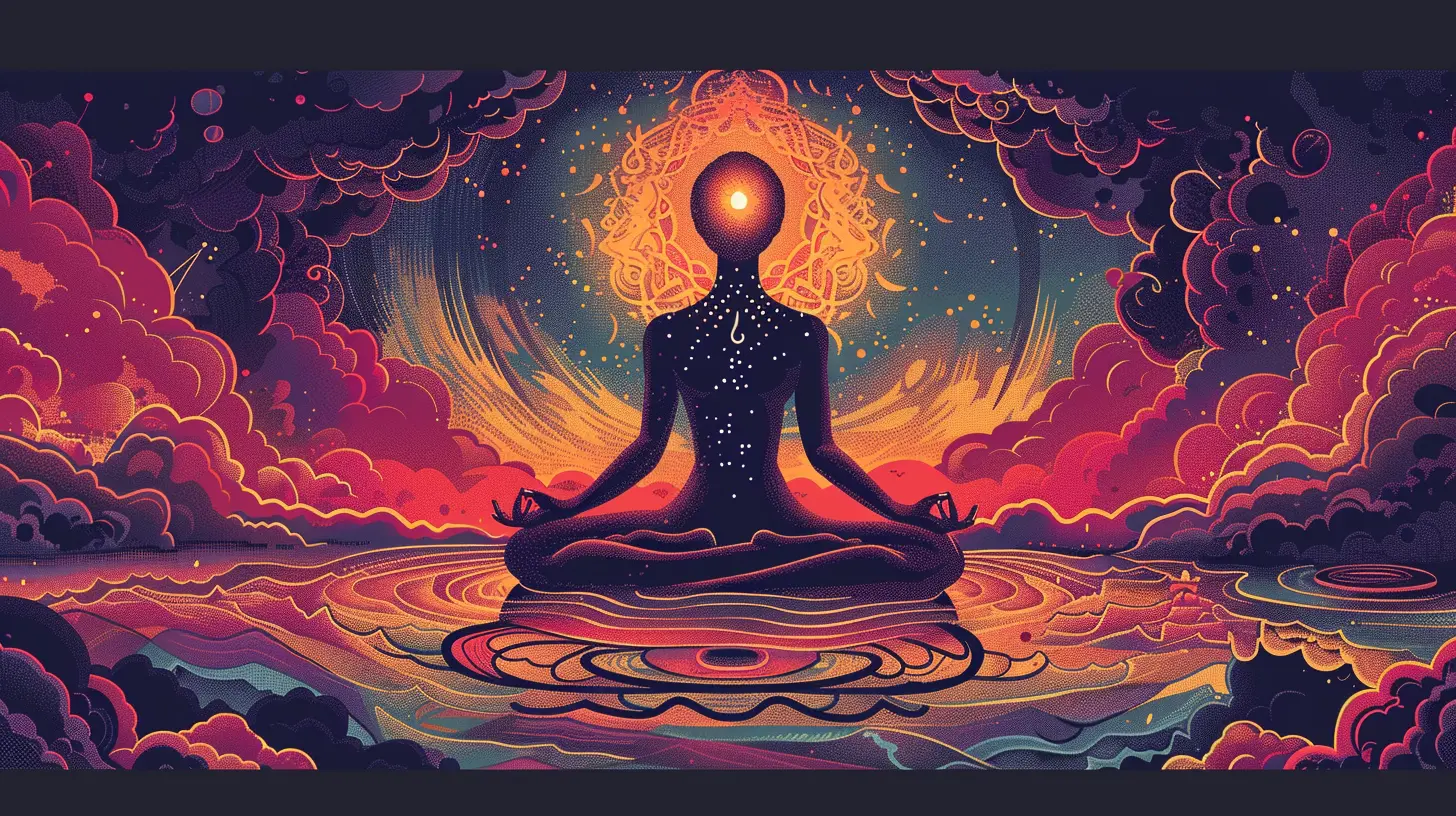The Role of Meditation and Spirituality in Addiction Recovery
12 August 2025
Addiction can feel like you're trapped in a constant loop—one that’s tough to break no matter how hard you try. It's not just about willpower or making better choices. It runs deep and takes over your mind, body, and spirit. So, when it comes to recovery, you can't just treat the surface—you've got to go deeper. That’s where meditation and spirituality come into play. These aren’t just "woo-woo" concepts or trendy buzzwords. They can be powerful tools in healing the emotional and spiritual wounds that often lie at the heart of addiction.
In this article, we’ll dive into how meditation and spirituality play an essential role in addiction recovery. We’ll keep it real and honest—because recovery is messy, raw, and deeply personal. And maybe, just maybe, you'll see meditation and spirituality not as fluff, but as lifelines in the storm.
Addiction: More Than Just a Physical Problem
Before we get into the healing side of things, let’s look at what addiction really is. Sure, there are chemical hooks—dopamine, serotonin, the whole brain chemistry thing. But addiction isn't just a physical disease. It's often a response to pain, trauma, stress, or feeling disconnected.Ever notice how addictions tend to creep in when you’re feeling lonely, anxious, or just...empty inside? That’s because addiction is often an attempt to fill a void. It becomes a coping mechanism, a way to escape reality. Whether it’s alcohol, drugs, gambling, or even scrolling endlessly through social media—addictions numb the emotional pain.
So if addiction is about disconnection, what’s the opposite? Yep, you guessed it—connection. That’s where meditation and spirituality come in.
So, What Exactly Is Spirituality?
Let’s clear something up first—spirituality is not the same as religion. You don’t have to go to church, follow a doctrine, or believe in a specific god to be spiritual. Spirituality is way more personal. It’s about feeling connected—to yourself, to others, to nature, or to something greater than you.For some, it might mean praying. For others, it’s finding peace during a walk in the woods, or simply being mindful and present. It's that sense of meaning, purpose, and belonging that makes spirituality such a powerful component in recovery.
Think of it this way: addiction shrinks your world. It narrows your focus to the next fix or the next drink. Spirituality, on the other hand, expands your world. It opens you up to something bigger—and that's exactly what you need when you're trying to recover.
Meditation: A Mindful Escape That Heals
Let’s talk about meditation—because it’s more than just sitting cross-legged and chanting “om.” Meditation is basically training your mind to stay in the present moment. And trust me, when you're in recovery, your mind needs that training big-time.In early recovery, anxiety is sky-high. Guilt, shame, fear—they all come flooding in. Your thoughts race, your emotions spike, and you feel like you're losing control. Meditation helps create a space between you and those intense emotions. It’s like putting on noise-canceling headphones for your soul.
Want a simple example? Try this: sit quietly for even just two minutes. Close your eyes and focus on your breath. Inhale...exhale...repeat. Sounds easy, right? Not so much. Your mind will wander. That’s OK. The magic is in noticing the wandering and gently bringing it back. That’s mindfulness in action.
Why Meditation Works in Recovery
Let’s break it down. Here's how meditation helps you stay on track during recovery:1. It Calms the Chaos
Your brain on addiction is like a browser with 50 tabs open. Meditation helps close some of those tabs. It lowers cortisol (your stress hormone) and activates the parasympathetic nervous system—that's your chill mode.2. It Builds Self-Awareness
You start noticing your triggers before they explode. You catch yourself reaching for that old habit and pause. That tiny pause? That’s progress.3. It Improves Emotional Regulation
Instead of reacting, you respond. Instead of snapping or spiraling downwards, you take a breath and step back. You learn to ride the emotional waves instead of getting crushed by them.4. It Boosts Resilience
Recovery isn’t a straight line. There will be setbacks. Meditation gives you the headspace to bounce back without giving up.What About Spiritual Practices?
Here’s the good news: you don’t have to follow a strict spiritual routine to gain the benefits. Spirituality is deeply personal. But here are a few spiritual practices that have helped many in addiction recovery:1. Prayer and Contemplation
Even if you’re not religious, you can still talk to something bigger than yourself. Call it the universe, higher power, source—whatever works for you. Prayer is less about asking and more about connecting, reflecting, and surrendering control.2. Gratitude Journaling
Writing down things you’re grateful for can shift your mindset from scarcity to abundance. That shift is huge in recovery when you're unlearning years of negative thought loops.3. Acts of Service
Helping others helps you heal. Whether it’s listening to a friend, volunteering, or supporting others in recovery—service gives you purpose.4. Time in Nature
There’s something inherently spiritual about being in nature. It reminds you that you’re part of something bigger, and it grounds you in the present moment.Scientific Backing: It’s Not Just Hype
Still skeptical? That’s fair. But here’s the thing—science backs all this up. Studies show that mindfulness-based interventions significantly reduce substance use and improve relapse prevention. Functional MRI scans have even shown that meditation alters the brain’s default mode network, reducing activity in the areas linked to craving and self-judgment.Spirituality, too, has been linked to lower relapse rates. One study found that people who identify as spiritual have higher emotional well-being and lower stress, two key factors in long-term recovery. Programs like AA (Alcoholics Anonymous) are built on spiritual principles for a reason—they work for many people.
Real Talk: It’s Not a Magic Cure
Let’s be clear—meditation and spirituality aren’t quick fixes. They’re not going to “cure” addiction overnight. They’re tools, not silver bullets. But when used consistently, they can transform the way you deal with cravings, emotions, and everyday stressors.And look, it's not always easy. Sitting still can feel like torture at first. Embracing spirituality might trigger some skepticism or even resistance. That's normal. Go at your own pace. There's no one-size-fits-all approach here.
How to Get Started: Baby Steps Matter
If you’re new to all this, don’t worry. You don’t need to become a monk or spiritual guru in a week. Start small. Here’s a simple plan:- Try 5 minutes of meditation in the morning. Use an app if you need guidance (Headspace and Insight Timer are great).
- Write down 3 things you’re grateful for before bed.
- Take a walk outside without your phone. Notice the sounds, smells, and sights.
- Read spiritual books or listen to podcasts that resonate with you.
- Join a recovery group that includes spiritual or mindful practices.
Remember, it’s not about being perfect—it’s about being present.
Common Myths Debunked
Let’s shoot down a few common myths:- "I'm not spiritual, so this won’t work for me."
You don’t have to be. Just be open. That’s enough.
- "Meditation is too hard."
It’s only hard if you expect perfection. It's about showing up, not zoning out.
- "I don't have time."
If you have time to scroll Instagram, you have time to breathe for 5 minutes.
Final Thoughts: Healing Is Holistic
Recovery isn’t just about staying clean. It’s about healing—your mind, your heart, your relationships, and your sense of self. Meditation and spirituality offer a path to that deeper healing. They reconnect you with who you are beneath the addiction.Yes, therapy and medical treatment are crucial. But adding these inner practices can be the thread that ties it all together. They help you become more than your addiction, more than your past, and more than your pain.
So if you're on the journey of recovery, or walking alongside someone who is—don’t overlook these tools. Sometimes, the quietest practices can have the loudest impact.
all images in this post were generated using AI tools
Category:
AddictionAuthor:

Gloria McVicar
Discussion
rate this article
1 comments
Orionyx Taylor
Great insights! I love how you highlighted the transformative power of meditation and spirituality in addiction recovery. They not only promote mindfulness but also foster a deeper connection to oneself. A beautiful reminder of the holistic approach to healing!
September 4, 2025 at 2:55 AM

Gloria McVicar
Thank you for your thoughtful comment! I’m glad you resonated with the transformative power of meditation and spirituality in the recovery process.


